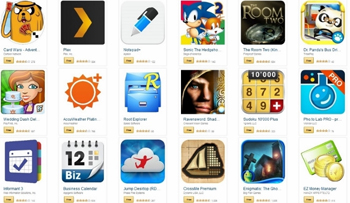Feb 5: Tesla is making Elon Musk a lot richer without paying him a dime.
A blistering stock rally has bolstered the value of CEO Musk's 19% stake in the electric car maker by $16 billion since the start of 2020, to $30 billion.
Tuesday's steep climb in the share price could sweeten Musk's payday under his record-breaking compensation package, which is built on stock options that rely on market value targets. Two milestones have now been achieved that could see Musk unlock options worth $1.8 billion.
The controversial chief executive, who is also the majority owner and CEO of rocket maker SpaceX, recently testified that he did not have a lot of cash as he successfully defended himself in a defamation lawsuit. He previously has taken loans using his Tesla shares as collateral.
Musk does not take a salary, choosing instead a risky options package that envisions the stock market value of Tesla rising to $650 billion over 10 years, a prospect that was derided by some investors when the deal was announced in 2018.
That target now looks less crazy. Shares of Tesla have rallied over 50% since the company posted its second consecutive quarterly profit last Wednesday, which was viewed as a major accomplishment for a company competing against established automotive heavyweights including General Motors Co and BMW.
Tesla shares have climbed about 400% since early June, helped by the company's better-than-expected financial results and ramped-up production at its new car factory in Shanghai.
On Tuesday, Tesla surged as much as 24% before falling back in the final minutes of the trading session to end the day up 13.7%. That put its market capitalization at $160 billion, almost twice the combined value of Ford Motor and General Motors.
The shares had also rallied on Monday, partly fueled by Panasonic Corp's 6752.T saying its automotive battery venture with Tesla was profitable for the first time.
The options Musk was awarded in 2018 vest incrementally based on targets for Tesla's stock market value and its financial performance. The market capitalization would have to sustainably rise by $50 billion increments over the agreement's 10-year period, with the full package payout reached if the market cap reaches $650 billion, as well as the company's meeting revenue and profit targets.
Musk is on his way to seeing his first two tranches of options vest. He achieved operational targets on revenue and adjusted earnings last year.
The rise in Tesla's market capitalization last month to a target of $100 billion opened the way for Musk's first tranche of options to vest. With Tuesday's surging share price, the market capitalization blew past the second target of $150 billion, opening the way for the second tranche to vest. Tesla's market capitalization must stay at or above each target level for one- and six-month averages for each set of options to vest.
Tesla was valued at about $52 billion when shareholders approved the pay package in March 2018, a time when the company faced a cash crunch, production delays and increasing competition from rivals.
A full payoff for Musk would surpass anything previously granted to U.S. executives, according to Institutional Shareholder Services, a proxy advisor that recommended investors reject the pay package deal at the time.
Musk currently owns about 34 million Tesla shares, and his compensation package would let him buy another 20.3 million shares if all his options tranches vest.
When Tesla unveiled Musk’s package, it said he could in theory reap as much as $55.8 billion if no new shares were issued. However, Tesla has since awarded stock to employees and last year sold $2.7 billion in shares and convertible bonds, diluting the value of the stock.
Musk has transformed Tesla from a niche car maker with production problems into the global leader in electric vehicles, with U.S. and Chinese factories. So far it has stayed ahead of more established rivals including BMW and Volkswagen.
Many investors remain skeptical that Tesla can consistently deliver profit, cash flow and growth. More Wall Street analysts rate Tesla "sell" than "buy," and the company's stock is the most shorted on Wall Street.
 Just in time for the weekend, Amazon is running a new promotion on Android apps.
Just in time for the weekend, Amazon is running a new promotion on Android apps.




Comments
Add new comment